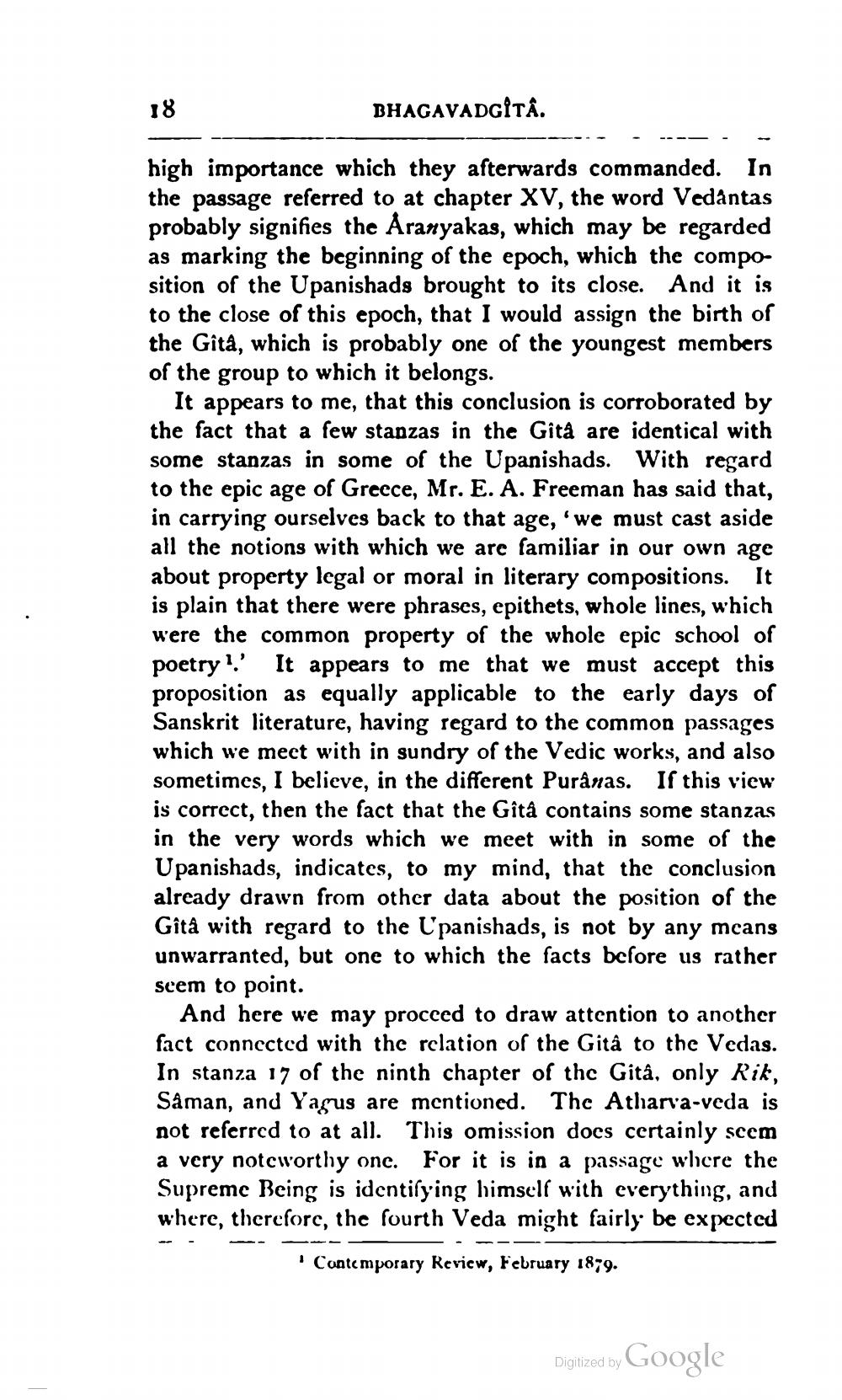________________
18
BHAGAVADGITA.
- ---- - - high importance which they afterwards commanded. In the passage referred to at chapter XV, the word Vedantas probably signifies the Aranyakas, which may be regarded as marking the beginning of the epoch, which the composition of the Upanishads brought to its close. And it is to the close of this epoch, that I would assign the birth of the Gita, which is probably one of the youngest members of the group to which it belongs.
It appears to me, that this conclusion is corroborated by the fact that a few stanzas in the Gità are identical with some stanzas in some of the Upanishads. With regard to the epic age of Greece, Mr. E. A. Freeman has said that, in carrying ourselves back to that age, we must cast aside all the notions with which we are familiar in our own age about property legal or moral in literary compositions. It is plain that there were phrases, epithets, whole lines, which were the common property of the whole epic school of poetry"' It appears to me that we must accept this proposition as equally applicable to the early days of Sanskrit literature, having regard to the common passages which we meet with in sundry of the Vedic works, and also sometimes, I believe, in the different Puranas. If this view is correct, then the fact that the Gîtà contains some stanzas in the very words which we meet with in some of the Upanishads, indicates, to my mind, that the conclusion already drawn from other data about the position of the Gîtà with regard to the L'panishads, is not by any means unwarranted, but one to which the facts before us rather scem to point.
And here we may proceed to draw attention to another fact connected with the relation of the Gitâ to the Vedas. In stanza 17 of the ninth chapter of the Gitâ, only Rik, Såman, and Yagus are mentioned. The Atharva-veda is not referred to at all. This omission docs certainly scem a very noteworthy one. For it is in a passage where the Supreme Being is identifying himself with everything, and where, therefore, the fourth Veda might fairly be expected
Contemporary Revicw, February 1879.
-
-
-
Digitized by Google




